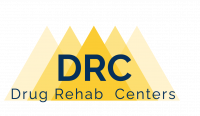Benefits of Residential Substance Abuse Treatment

Residential substance abuse treatment is an important step in the recovery process for many addicts. This type of treatment provides a safe and supportive environment for addicts to get the help they need to overcome their addiction. In this post, we will talk about the benefits of residential substance abuse treatment. So let’s dive right in!
Physical Benefits
When people think of addiction treatment, they often only consider the psychological benefits. However, there are also many physical benefits that come with residential addiction treatment programs. These programs provide a safe and focused environment for those struggling with addiction to detox and begin their journey to recovery.
One of the main benefits of residential treatment is the seamless transition it provides from detox to treatment. Detox can be a difficult and vulnerable period for those addicted to drugs or alcohol, and having a continuous medical presence can make all the difference. Drug rehab centers that offer residential treatment programs increase the chance of successful outcomes by providing around-the-clock care and supervision.
Psychological Benefits
Residential substance abuse treatment offers a number of psychological benefits that can make all the difference in a person’s sobriety. Different psychotherapy options are available, and patients can discuss their current use, transitions to sobriety, and different types and styles of treatment with their counselor. This is imperative because it helps them to understand the recovery process better and also provides them with moral support.
Group therapies are also conducted in residential facilities wherein patients suffering from addiction or any other mental health disorder share their experiences with each other. These sessions help everyone to learn new coping mechanisms and strategies while also providing a sense of camaraderie. Studies have shown that patients who actively participate in group therapies are more likely to have better outcomes than those who don’t.
Many other psychological benefits make it an imperative choice, especially for those who have bipolar disorder, anxiety, or depression. Long-term and short-term stays are available, and the duration of the stay depends on the circumstances of each individual patient. However, most important is that patients receive the treatment they need to recover fully.
Emotional Benefits
Most people are aware of the physical dangers of drug abuse. However, fewer people realize the emotional toll that addiction can take. Patients in residential rehab programs often have a history of significant trauma or co-occurring disorders. For these patients, emotional safety and peace of mind are vital to overall treatment success.
In residential rehab, patients are able to recognize and address the root causes of their addiction. They can begin the process of emotional healing in a safe and supportive environment. This is a crucial step in recovery, as it lays the foundation for long-term sobriety. There are a lot of distractions in every home or apartment. There are also a lot of potential triggers for people in early recovery. In residential rehab, patients can focus on their recovery without these distractions or triggers. This allows them to really work on themselves and their sobriety.
Residential addiction treatment programs offer many emotional benefits that are essential to long-term recovery.
Success Rate
When an addict is at home, they are more likely to relapse. They have access to any substance or alcohol, and the temptation is higher. Outpatient rehabs give patients the freedom to come and go as they please, but this also increases the chances of relapse.
Studies have shown that more individuals remain in treatment when they are in a residential program because they are away from the trigger environment. When a patient sits in the room where they used to abuse drugs or alcohol, it is more likely to bring back memories of the times when they abused substances.
This can make it more challenging to resist the temptation to relapse. Being in a residential program also allows patients to detox completely from any substance or alcohol. It is important because it gives them a chance to start fresh and rebuild their lives.
Patients in residential programs have around-the-clock care and support. They receive complete detox and treatment for their addiction, as well as occupational, psychological, and social counseling. This comprehensive approach has proven to be successful time and time again, with decreased risk for relapsing into substance use disorder.
If you or someone you love is struggling with addiction, please reach out for help today. Sobriety is possible, and there is hope for a better future.
